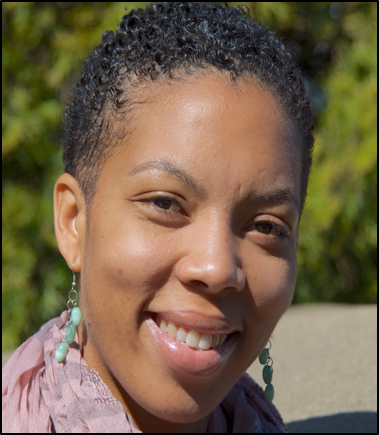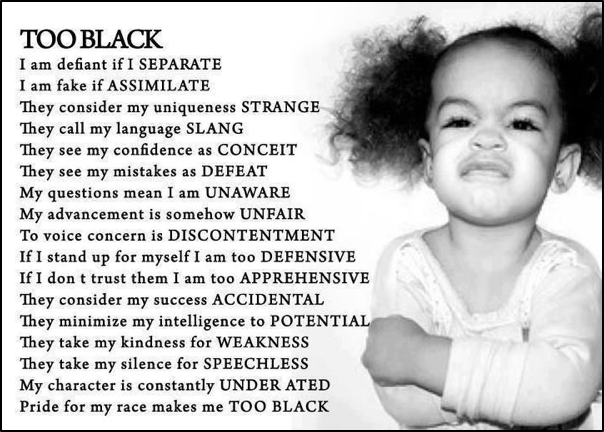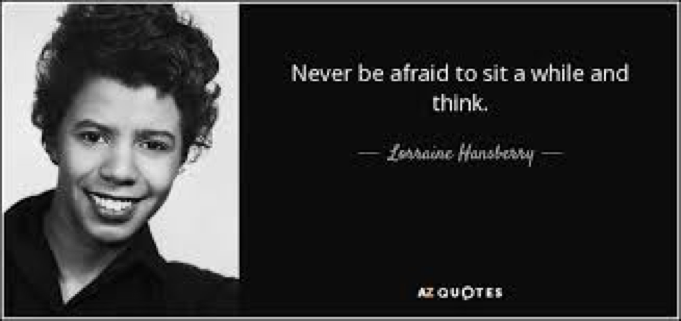The Hip Hop Feminism Pedagogy Reader
Wish to Live
Edited by Ruth Nicole Brown and Chamara Jewel Kwakye
The reader “Wish to Live” reminded me of reading a “Chicken Soup for the Teenage Soul” (how 90’s white kid of me) in such a way that it shared a variety of lived experiences, written in a variety of ways, to personalize the message and experience of feminist hip-hop. This book is valuable for scholarship because it gives feminist hip-hop a relatable voice; relatable voice meaning that I had an access point to share the lived experiences of another to gain perspective around a topic I thought I knew about, but from a very impersonal standpoint. The reader gives voice to many voices that are historically silenced. The reader gives scholarship to writings that may otherwise would be dismissed. The reader empowers young black women to share a voice that is silenced in academia- it allows them to validate their experiences as worthy.
The book is sectioned into 5 parts. For the next part, I am going to speak to 1 article per section that I was impacted the most by, though I would, and will, recommend everyone read this, as with Chicken Soup, it soothes the soul in a way that warms your heart and spikes a fire in you at the same time.
The book is sectioned into 5 parts. For the next part, I am going to speak to 1 article per section that I was impacted the most by, though I would, and will, recommend everyone read this, as with Chicken Soup, it soothes the soul in a way that warms your heart and spikes a fire in you at the same time.
“By Foregrounding the lived experiences and embodied knowledge of women of color who do Hip-Hop feminism, write from a regular folk position, and are growing up on the 1s and 2s of Empire, we share what we know to help make sense of our daily lives and to name the particularities of our struggle and joy.” Introduction P. 3
Part 1: Miseducation The is not an apology
“Lighting the Fire: Hip-Hop Feminsim in a Midwest Classroom” by Zenzele Isoke took me back to my first and only class in undergrad at Marquette University, a Jesuit university in Milwaukee, Wisconsin: Race, Sports and Hip-Hop in Sociology. It was my second semester of senior year, this cool, former NFL player was the professor, pshh easy A, blow off class. The syllabus had 6 books, a mix of novels one of which was Sista Soulja, informational books about white privilege, and readers about Hip-Hop similar to this. Six books for a class on hip hop?! Who does this guy think he is?
I only wish my first class would have started with an uproarious conversation about what hip-hop was rooted in, instead in was nearly crickets as the primarily white female class sat in uncomfortable silence, afraid to mention race or discuss origins of something so foreign to them. If this is any indicator for how the remainder of the semester would go, we were in for a rough ride. Our first paper as due, I got a C. A C. I had not gotten a C in college since first semester of college. I was hot. How dare this man in my blow off class dare give me a C. Over spring break, I stated just that. His response, “Come to my office hours.”
I ended up learning and being pushed more than I had in all 4 years of school combined. I was forced to think. I was forced to unapologetically learn about a space I was not part of, would never be part of, and appreciate it. This class, and as the article articulates, forced me to “challenge norms, expectations, and the basic rhythm of the university.” In the end, I became life long friends with my professor, he continues to challenge me, challenge academia, and seek truth. He was the person that pushed me to The Graduate Center as he was a graduate from a PhD program here himself.
Also, I can’t wait to take the “interruption game” back to students and staff for some hip-hop cultural engagement. Update: I brought this game to a group of 7th graders in Harlem. It was hysterical, empowering, and inspirational. They loved every second of it. I can’t wait to continue to use this game to enhance culture both with adults and children.
“Lighting the Fire: Hip-Hop Feminsim in a Midwest Classroom” by Zenzele Isoke took me back to my first and only class in undergrad at Marquette University, a Jesuit university in Milwaukee, Wisconsin: Race, Sports and Hip-Hop in Sociology. It was my second semester of senior year, this cool, former NFL player was the professor, pshh easy A, blow off class. The syllabus had 6 books, a mix of novels one of which was Sista Soulja, informational books about white privilege, and readers about Hip-Hop similar to this. Six books for a class on hip hop?! Who does this guy think he is?
I only wish my first class would have started with an uproarious conversation about what hip-hop was rooted in, instead in was nearly crickets as the primarily white female class sat in uncomfortable silence, afraid to mention race or discuss origins of something so foreign to them. If this is any indicator for how the remainder of the semester would go, we were in for a rough ride. Our first paper as due, I got a C. A C. I had not gotten a C in college since first semester of college. I was hot. How dare this man in my blow off class dare give me a C. Over spring break, I stated just that. His response, “Come to my office hours.”
I ended up learning and being pushed more than I had in all 4 years of school combined. I was forced to think. I was forced to unapologetically learn about a space I was not part of, would never be part of, and appreciate it. This class, and as the article articulates, forced me to “challenge norms, expectations, and the basic rhythm of the university.” In the end, I became life long friends with my professor, he continues to challenge me, challenge academia, and seek truth. He was the person that pushed me to The Graduate Center as he was a graduate from a PhD program here himself.
Also, I can’t wait to take the “interruption game” back to students and staff for some hip-hop cultural engagement. Update: I brought this game to a group of 7th graders in Harlem. It was hysterical, empowering, and inspirational. They loved every second of it. I can’t wait to continue to use this game to enhance culture both with adults and children.
“In Hip-Hop classrooms, students and instructors are forced to question our predispositions about Hip-Hop Culture and politics. “P 35
Part 2 Justice: My Life has taught me to defy other folks expectations
“Camp Carrot Seed: Reflections on a Critical Pedagogic Protect” by Sheri Davis-Faulkner discusses the struggles of trying to start a program to help youth make wise food choices. In her endeavors she realizes there were many more obstacles than she anticipated with making this happening, including funding, participation, health/food choices that are engrained in lifestyles, gardening is harder than it looks, and black children have more resources than one might assume. I honestly had to google this lady as the way it was written, it sounded like a white person with a savor complex writing this article. Many of these “findings” seemed so obvious to me as a low-income educator. I particularly was thinking about my experiences in South Dallas as a high school teacher. Most low income schools are in food deserts, meaning grocery stores are very far away and the other issues posed are par for the course of teaching in low in come neighborhoods. And of course the children have resources and skills that are valuable if you tap into them. While the article is well intentioned, I was paused and wondered who the audience was, it didn’t seem like the audience of the rest of the book, but would definitely resonate with my former Teach for America eager beaver colleagues to read before stepping into an environment they think they know about, but know nothing about.
“Camp Carrot Seed: Reflections on a Critical Pedagogic Protect” by Sheri Davis-Faulkner discusses the struggles of trying to start a program to help youth make wise food choices. In her endeavors she realizes there were many more obstacles than she anticipated with making this happening, including funding, participation, health/food choices that are engrained in lifestyles, gardening is harder than it looks, and black children have more resources than one might assume. I honestly had to google this lady as the way it was written, it sounded like a white person with a savor complex writing this article. Many of these “findings” seemed so obvious to me as a low-income educator. I particularly was thinking about my experiences in South Dallas as a high school teacher. Most low income schools are in food deserts, meaning grocery stores are very far away and the other issues posed are par for the course of teaching in low in come neighborhoods. And of course the children have resources and skills that are valuable if you tap into them. While the article is well intentioned, I was paused and wondered who the audience was, it didn’t seem like the audience of the rest of the book, but would definitely resonate with my former Teach for America eager beaver colleagues to read before stepping into an environment they think they know about, but know nothing about.
|
Part 3 Performance: My legacy of imagination is not lost.
“I Am a Woman” by Loy A Webb is a play that everyone should read. A) It was super fun to read, I was just imagining the class doing a read a loud because I could feel the passion in the words and 2) The stereotypes addressed and redressed are messages the masses need to hear. All of the women are people. They are living, breathing people worthy of respect and being heard. But they’re not. They are caught and exhausted by stereotype that devalue their existence. “We march for you” |
Part 4: People
“A Mother and Daughter Talk Hip-Hop” by Lena Foote I couldn’t help but think of my own mom as I read this. No, my mom knows nothing about feminist hip-hop, doesn’t know much about feminism for anyone for that matter. She is not even liberal. But somehow she raised a feminist, liberal, civil rights advocate daughter. What stood out to me the most was “My mother also knew that children absorb everything when they are younger, and as a result, they foreverer remember key moments in their younger years.” While my mom loved the Beatles, she also loved Louis Armstrong, all Motown, and let me play the Inner Circle CD on repeat, so much it got stuck in her car CD player. Mothers have a special place in our development, whether I knew it at the time, she was helping me evolve and appreciate.
“A Mother and Daughter Talk Hip-Hop” by Lena Foote I couldn’t help but think of my own mom as I read this. No, my mom knows nothing about feminist hip-hop, doesn’t know much about feminism for anyone for that matter. She is not even liberal. But somehow she raised a feminist, liberal, civil rights advocate daughter. What stood out to me the most was “My mother also knew that children absorb everything when they are younger, and as a result, they foreverer remember key moments in their younger years.” While my mom loved the Beatles, she also loved Louis Armstrong, all Motown, and let me play the Inner Circle CD on repeat, so much it got stuck in her car CD player. Mothers have a special place in our development, whether I knew it at the time, she was helping me evolve and appreciate.
Part 5 SOLHOT: I wish to live.
"Check-In" by Porshe Garner This. Is. Our. Class. Obviously, our class is so much more, but this game me valuable perspective around the why of how we start our class and it’s structure. It also made me more self-conscious than I already am about being part of this class, but I am very grateful for this experience; to be in a space that is not created for me, for what is debatable if I belong here, but I imagine most black women are made to feel that way in most of their higher education, and all education courses.
"Check-In" by Porshe Garner This. Is. Our. Class. Obviously, our class is so much more, but this game me valuable perspective around the why of how we start our class and it’s structure. It also made me more self-conscious than I already am about being part of this class, but I am very grateful for this experience; to be in a space that is not created for me, for what is debatable if I belong here, but I imagine most black women are made to feel that way in most of their higher education, and all education courses.
Site Designed/Maintained by Carmen Kynard
|





